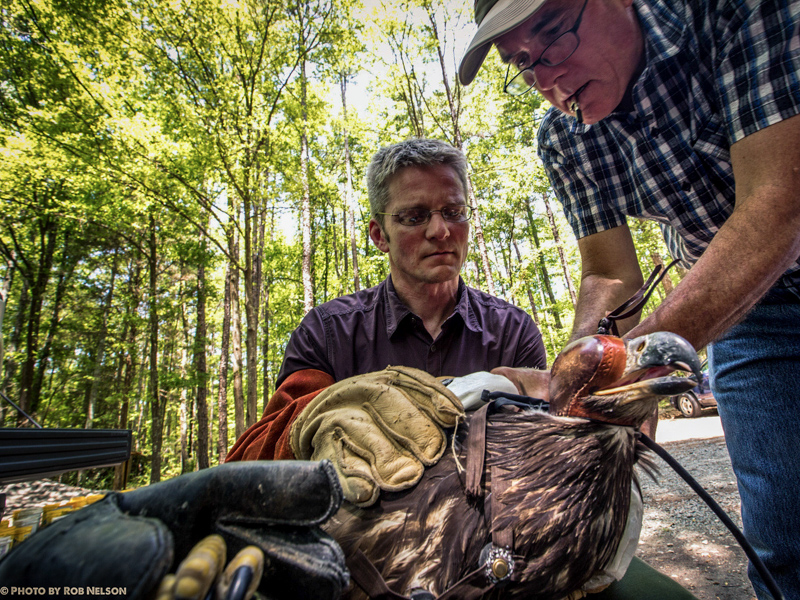NC State Researcher Joins Global Effort to Study Impact of ‘Anthropause’ on Wildlife
For immediate release ‐ July 01, 2020
Contact: Roland Kays, rwkays@ncsu.edu. Images available upon request
 An eagle named Freedom will be part of a study of the “anthropause” on wildlife. Roland Kays, a research professor at the NC Museum of Natural Sciences and NC State, joined an international group of researchers in issuing a call to action for scientists who track wildlife. Photo: Rob Nelson/Untamed Science.
An eagle named Freedom will be part of a study of the “anthropause” on wildlife. Roland Kays, a research professor at the NC Museum of Natural Sciences and NC State, joined an international group of researchers in issuing a call to action for scientists who track wildlife. Photo: Rob Nelson/Untamed Science.
Stories have popped up on social media about unusual wildlife encounters during lockdowns imposed in response to the COVID-19 pandemic. There have been tales of dolphins playing in a port in Italy and jackals roaming in daylight in Israel.
The truth of some of those posts has been challenged or debunked, and now scientists who study wildlife want to know the full, true story of how the “anthropause” – the reduction in human activity to limit the pandemic’s spread – has affected wildlife.
Roland Kays, a zoologist and research professor at NC State and North Carolina Museum of Natural Sciences, joined a call by wildlife scientists from around the globe to share scientific data on animal behavior.
Their goal is to understand how human activity impacted wildlife before, during and after global shutdowns due to the pandemic.
Full story:
NC State Researcher Joins Global Effort to Study Impact of ‘Anthropause’ on Wildlife

